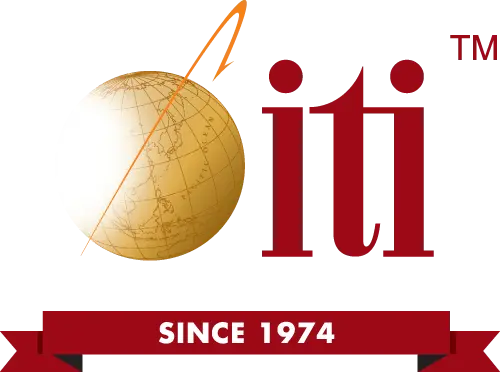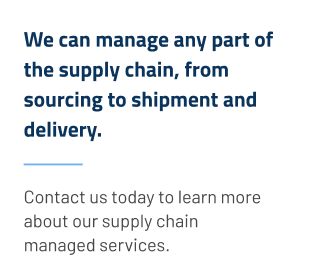
Nurturing Relationships in Global Manufacturing Procurement
No matter how advanced our industrial manufacturing technologies and manufacturing solutions get, there will always be a need for the human touch and an interpersonal relationship as the foundation of any significant buying engagement.
Said another way, if one party relies on another party to manufacture their goods at a considerable capital cost, both the buyer and seller must share a healthy level of trust. Without trust, procurement relationships will never reach their potential, and significant capital opportunities will be left unrealized, benefiting no one.
For this reason, it’s imperative that players involved in manufacturing solutions recognize their responsibility for nurturing healthy procurement relationships, committing to visibility, honesty and risk mitigation on the other’s behalf. Once this commitment is made, the next question involves how to nurture this trust.
At the outset, let’s not confuse trust with faith. We firmly believe that trust is built upon and maintained by sound, transparent business practices on both the buying and selling sides of a relationship. That’s to say, trust is fundamentally earned in practice. We make no claim that trust should be granted purely on faith, without evidence.
So which procurement method earns the most trust: fully online procurement, where a buyer initiates completely digital transactions without human support, or sourcing agent-guided procurement, in which a buyer engages with a trusted human partner to nurture manufacturing relationships?
Modern Sourcing Using Sourcing Agent Procurement
To properly orient our perspective on procurement methods, let’s set the stage with a few definitions:
- Procurement is the set of business processes that facilitate the acquisition of goods or services, solving for the company’s overall long-term costs and sourcing efficacy. Procurement involves multiple steps, including supply chain evaluation, supplier relationship management, legal compliance, purchasing and contract enforcement.
- Fully online procurement involves placing complete faith in entirely digital, automated transactions using web-based buying platforms. These fully online providers market themselves as using internal data systems to complete the above procurement processes, claiming lower price points due to lower operating costs.
- Sourcing agent procurement involves engaging an established, credible sourcing team (made up of real humans) to guide buyers through the foreign manufacturing procurement process. Advanced technological tools are used (as with the above option), but the key difference is that buyers work directly with the sourcing agent utilizing these tools, making decisions together.
With fully online purchasing, all the underlying workflows that normally mitigate risk occur behind the scenes, creating a great deal of ambiguity in the entire process. Furthermore, there is a component of uncertainty involved in any transaction that occurs across an e-commerce web store, regardless of whether the platform serves retail or industrial buyers. Low visibility, lack of verification and questionable due diligence are inherent with fully online purchasing, leading buyers to search for alternatives that can be more thoroughly vetted and trusted. This search typically leads to engaging a real-life sourcing agent, providing buyers with benefits such as:
- More supplier options. A core benefit of agent-assisted procurement is that buyers do not need to manually solicit individual suppliers for price quotes themselves. They also don’t have to blindly trust an online tool to recommend the best options. Instead, sourcing agents take the time to understand their clients’ needs and priorities, offering back a short list of premier suppliers from their personally vetted contacts that meet or exceed expectations.
- Advanced analytics. Both fully online and agent-assisted procurement use digital tools to aid in their clients’ decisions, but unlike fully online options, sourcing agents build their analysis from much more accurate and pertinent datasets developed together with their clients. This relationship provides buyers with highly personalized data feedback using metrics such as cashflow velocity, marginal unit costs, schedule milestones and additional non-unit costs (such as shipping, insurance, etc).
- Rigorous evaluation. Hands-down, early procurement steps such as seller pre-qualification, reference checking, technical capability verification and even sample product evaluation are best supported by sourcing agents. Buyers can build out their requirements in these areas with their sourcing agent, and then their agent can actively measure and enforce actual manufacturer performance against these requirements.
- Automated procurement management. Once a supplier is selected, the differences between fully online and sourcing agent procurement become apparent. Online systems offer little useful insight into production and shipping status, communication with the actual manufacturer, early warning of potential disruptions and technical compliance. Sourcing agents, on the other hand, are always a phone call away, as are their trusted staff onsite at the manufacturer’s location, available for immediate and direct interaction on a buyer’s behalf.
- Strategic sourcing empowerment. Procuring manufacturing solutions is a matter of competitive advantage for businesses. Properly integrating a client’s strategic sourcing expectations into the procurement process is vital for success. A fully online procurement system cannot capture strategic objectives, let alone act on them in evaluating cost profiles, high availability levels, profit forecasts, risk potential, sustainability and more.
Manufacturing Solutions: Comparing Fully Online and Sourcing Agent Relationships
So far, we’ve established that sourcing agent-assisted procurement methods offer substantial benefits that facilitate better industrial buying, but what does that have to do with the matter of trust that we mentioned above? Here’s where we bring it all together: A relationship with a sourcing agent is built upon much deeper understanding of each other’s interests. It firmly establishes a foundation of mutual trust that is simply impossible with a non-human, fully online alternative. This interpersonal trust often leads to much deeper business insights and opportunities over digital-only channels.
To further make this point, let’s compare features of online vs agent relationships:
| Fully Online Procurement | Sourcing Agent Procurement | |
| Default data tool | Website dashboard | Interactive digital platform |
| Default communication | Automated, generic emails and push notifications | Personal emails, phone calls and meetings |
| Primary time horizon | Single transaction | Long-term engagement |
| Supplier qualification | Behind the scenes | Collaborative, personal vetting |
| Market research | N/A | Ongoing, in-field |
| Contract issuance | Behind the scenes | Collaborative, locally negotiated |
| Transaction tracking | Website dashboard | Regular in-field updates |
| Risk management | Slow, reactive | Fast, proactive |
| Supply chain health | Manual disruption recovery | Predictive disruption avoidance |
| Ideal product class | Low-value, commodity | Mission-critical, specialized |
| Adoption | User-directed learning of website tools | Human project manager-led onboarding |
| Competitive value | Limited | More sophisticated procurement |
| Supplier value | Limited | Faster procurement cycle |
| Customer value | Limited | Max product features |
| Cost value | Lower upfront cost, high potential risk exposure cost | Lower total cost of procurement |
| Strategic value | Limited, transactional | Long-term, sustainable |
| Owner value | Limited, manual historic insight | Maximum, deep historic insight |
Choosing the Best Solution for Your Success
As we can see from the above table, sourcing agent-assisted procurement provides significant benefits over fully online ordering, most notably in all of the subjective, interpersonal ways that deliver great value.
As you consider what track to follow in managing your manufacturing solutions’ relationships, think again about our initial objective: building trust into your supplier relationships.
Manufacturers engaged with fully online tools will lack visibility for buyers or their stakeholders. Blind spots can be rampant, leading to miscommunications, disruptions and complete stall-outs.
These situations can be difficult to recover from and typically come with high costs. For these reasons, trust is initially established on goodwill and hopeful financial expectations but can quickly be eroded by the realities of executing the deal.
Manufacturers engaged through sourcing-agent partnerships are infinitely more visible to buyers, both through direct communication facilitated by the agent and through the agent’s representatives serving as your voice, eyes and ears onsite in real time.
This direct engagement reduces blind spots and manufacturers are much more likely to prioritize their commitments to buying teams they have relationships with. Here, trust is built on mutual investment into a beneficial partnership, forging a much stronger relationship than is otherwise possible.
With almost 50 years of experience executing entire order lifecycles from ideation to final delivery, ITI Manufacturing is here to help customers discover, qualify, engage and manage manufacturing solutions across the globe. For more information or to discuss your project, please contact our U.S. headquarters in Texas via phone at (281) 242-7030 or online.





